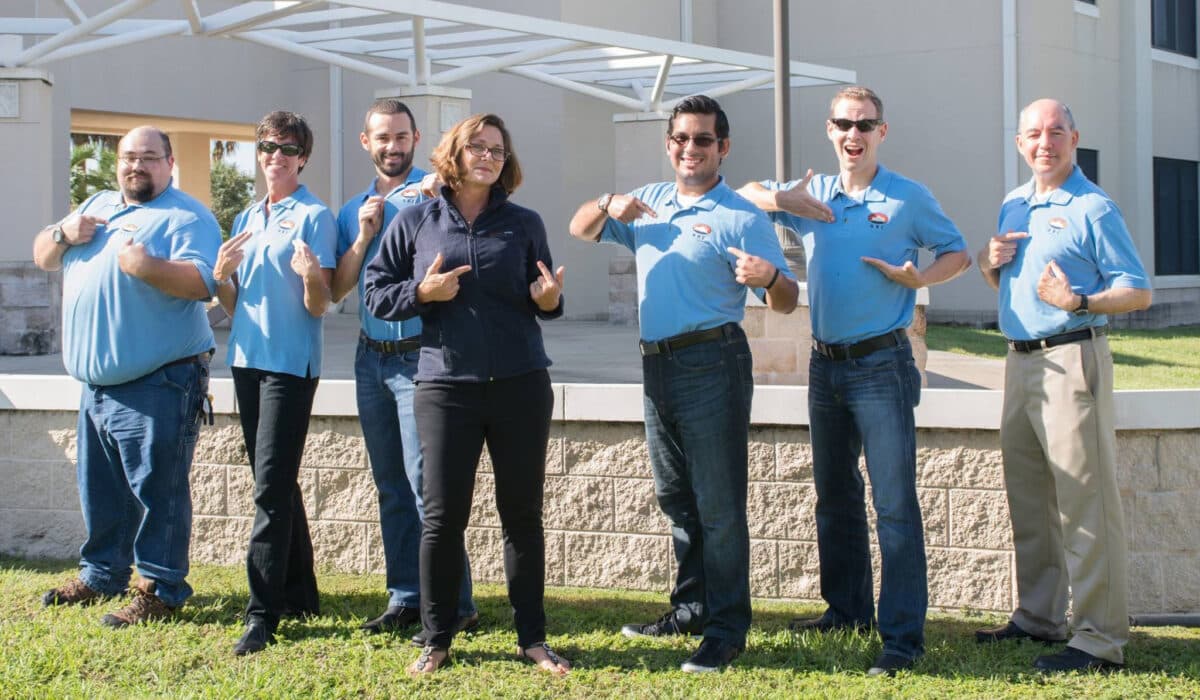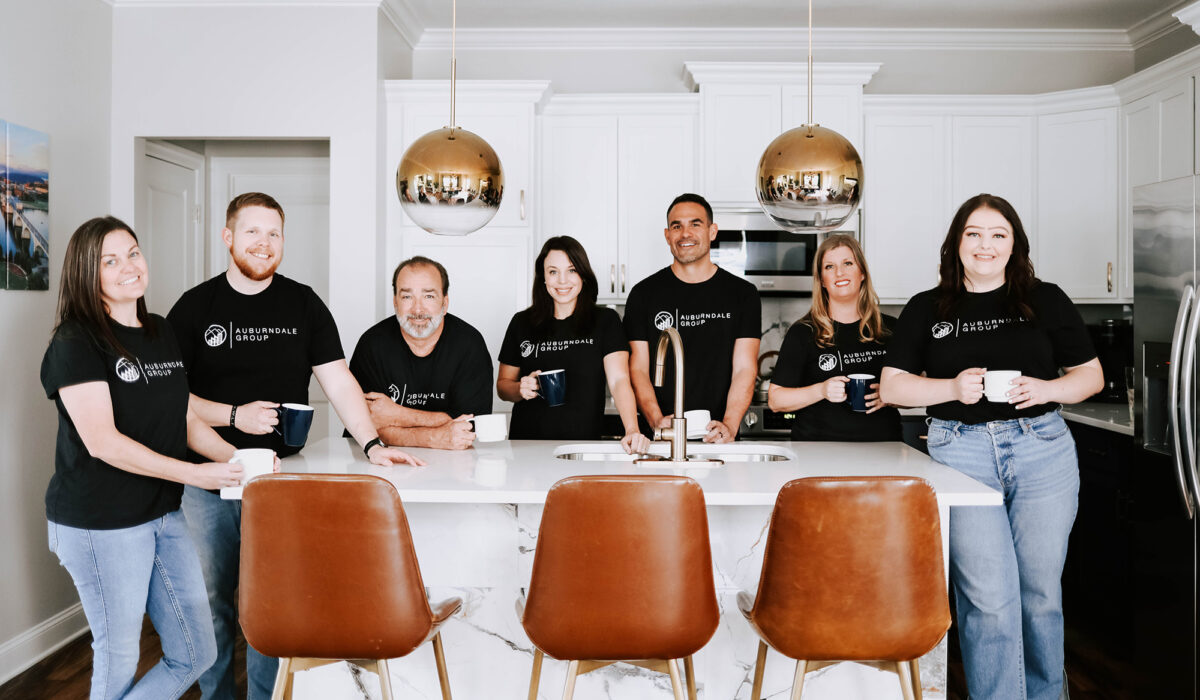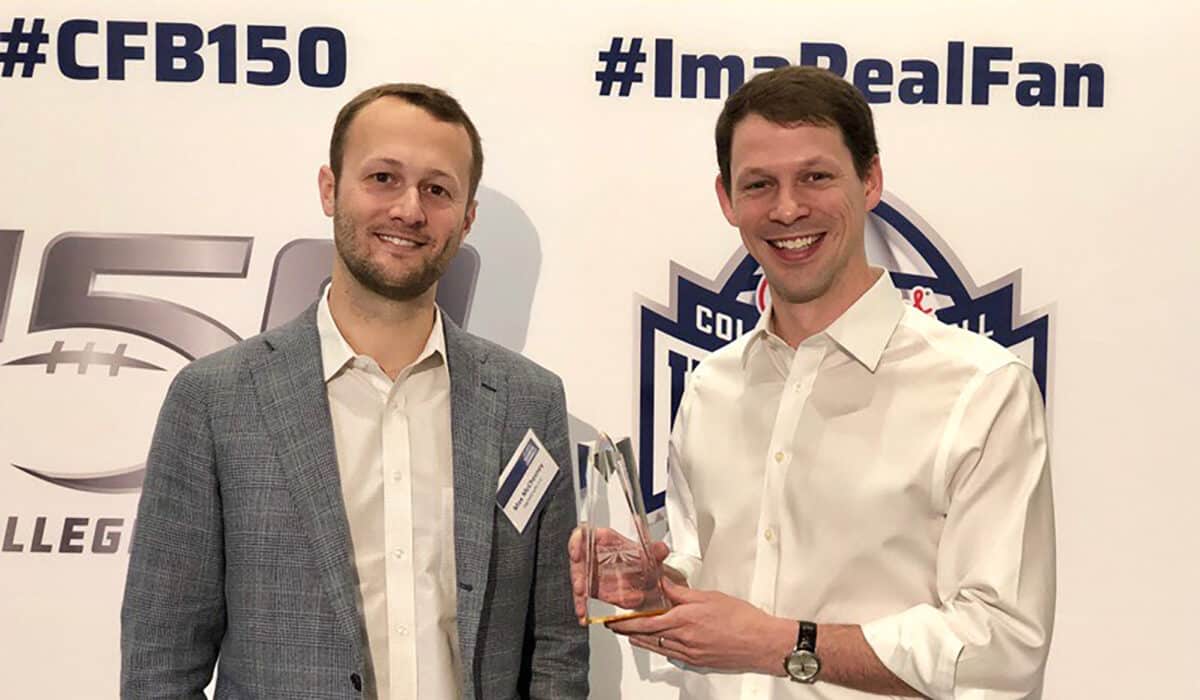Sarah Gonzales and her husband served as career diplomats in places like Afghanistan, Liberia, Paris, Brussels, and Tel Aviv.
But when they had young children and wanted to stay put in the U.S. for a while, Sarah started tutoring on the side in addition to her State Department job.
Her side project turned into Tungsten Prep, a tutoring and test prep service for middle and high schoolers. Five years later, the company was earning 7 figures annually and she was ready to sell. The buyer, who paid in the low 7-figure range, turned out to be someone very close: her first employee.
How an ‘accidental entrepreneur’ started Tungsten Prep
Gonzales and her husband were both U.S. State Department employees who’d built their careers living around the world.
“To be a diplomat is like being a shark – you have to keep moving or die,” she told They Got Acquired.
But in August 2016, as they were getting ready for their then 5-year-old daughter to start school, they discovered that she was dyslexic, and that their 3-year-old son had ADHD.
“Every expert we talked to was like, listen, you could take them abroad, but every time you move they’re going to experience six months of learning loss,” Gonzales said.
The couple decided to continue working at the State Department but remain stateside. But that meant, Gonzales said, that “our diplomatic careers were not going to reach the heights that we thought they might have 10 years previously.”
So Gonzales talked with a friend about tutoring. If nothing else, it would help pay the mortgage on their home. The friend put an ad on a neighborhood listserv: Harvard-educated economist offers math lessons. Gonzales signed up her first three clients in 24 hours, and within a few months was making $10,000 a month at this new side hustle.
“I think of myself as an accidental entrepreneur,” Gonzales said.
She called it Tungsten Prep because tungsten is the metal filament in lightbulbs, and she wanted to reflect the “lightbulb moment” when a student finally gets it.
“But more than that, I was attracted to the connection between the lightbulb and Thomas Edison’s personal philosophy of infinite curiosity, joy in the face of setbacks and resilience,” she said. “Particularly at a time when students are judged on their public outcomes alone (the grade, the SAT score, the brand name college), I wanted to capture the qualities of character we hoped to impart to our students.”
When she started getting calls from people looking for tutoring in subjects she couldn’t cover, she connected with additional tutors, set up a website, and worked with local SCORE volunteers to register her business.
Within about a year, she had 20 tutors on her team, and her husband, Robby Gonzales, decided to take time off from the State Department to help with operations. Most of the tutoring was in person, with no more than 20% of the business online.
Growth strategies for Tungsten Prep and COVID’s impact
With a high-quality service and great word of mouth, the business grew rapidly.
“As we grew and hit about $50,000 in monthly recurring revenue, I got sidetracked thinking about scale,” Gonzales said.
Up until this point, the business had grown largely through referrals and word of mouth. Now, Gonzales tried to invest in new marketing strategies. She started advertising more online to scale the business but ultimately felt it was unsuccessful.
“We ended up spending tens of thousands of dollars on digital marketing that didn’t bring us new customers, precisely because it was impersonal and inconsistent with our brand,” she wrote. “After a year of expensive experiments and stagnant growth, I returned to the relational, customer-centric sales and marketing approach that was integral to our success.”
Then came the pandemic.
“With COVID, the tutoring industry changed dramatically,” Gonzales said. National tutoring chains used VC money to spend heavily on digital marketing, since all tutoring was being done online and tutors no longer needed to be local to their students.
“It produced a race to the bottom,” she said, “with VC-backed tutoring companies operating at a loss in order to acquire customers.”
Her customer acquisition costs grew. At the same time, a number of colleges stopped requiring SAT or ACT scores for admission. Test prep was about 20% of her total business at the time, and Gonzales worried that this revenue wasn’t sustainable.
To get her revenue-funding business through this tough time, she took out an SBA loan for $200,000 and received $500,000 in COVID-related relief funding.
That’s when she and her husband decided to explore a sale.
Finding the right buyer and the right fit for Tungsten Prep
They explored selling with a couple of business brokers, but felt the incentives weren’t fully aligned.
“After conversations with half a dozen brokers, and a few false starts, we started quietly approaching people in our professional network,” Gonzales said. “We ultimately had conversations with a few larger tutoring companies that wanted to use our brand to enter our hyper-local market.”
But these bigger companies didn’t feel like the right fit. Tungsten Prep had developed their own curriculum, and she knew a larger tutoring company would likely abandon it.
At this point, the company had about 500 customers and an average customer value of $3,000 to $10,000. Gonales said they had prioritized serving students of color and hiring people of color and women with STEM degrees. But larger prospective acquirers didn’t seem to value diversity as highly, she said.
In the end, they took a different route, selling the business to their first employee, Kristen Mastropole, and her company, Mastropole Education Services.
“It’s hard for an individual to match what financially other companies could do,” Gonzales said, but the match in terms of values and continuity for the brand and employees was more important to them.
“She had been present from the creation of the business, designed our curriculum and authored two books for us on the SAT and ACT,” Gonzales. “She knew our customers, our team and shared our values. While other bidders might have offered us a slightly higher price, we felt the experience of selling the business would be smoother with someone we trusted, and who trusted us.”
They saved money on fees by DIY-ing the sale instead of using an M&A broker, which helped them find a sale price in the low-7 figures that worked for both parties. Revenue was in 7 figures at the time, and the sale price was slightly under 1x annual revenue.
The accidental entrepreneur goes pro
“After we sold the business,” Gonzales said, “I wanted to take all those mistakes I made, all those failures, all those lessons learned, and build something that could help other small business owners do it faster, do it better, do it with fewer headaches than I did.”
While attempting to scale Tungsten Prep, Gonzales had hired digital marketing consultants who cost as much as $6,000 a month but failed to deliver results. She realized that small business owners need more support than they can typically afford.
“I wanted to create a business that would look at the whole growth ecosystem of what small businesses need,” she said.
Now, Gonzales is running a new business — while continuing to work at the State Department — called RS Gonzales. It provides a proprietary tech stack and concierge sales and digital marketing support to local service businesses with between $500,000 and $5 million in revenue. They provide customer relationship management, email marketing, text marketing, review management, and other services via an app or online portal.
Gonzales also runs a newsletter for small business owners in the Washington, D.C., area called Mighty Small.
“I’m a much better business owner this time around,” she said.
She was able to hire a team right away, and generally has accomplished in four months what took her two years to build with Tungsten Prep, in part because she’s better at delegating.
“I spend a lot of my day walking my dog or taking my kids to summer camp, and the whole time I’m listening to podcasts or thinking,” she said. “The business is the better for it.”



